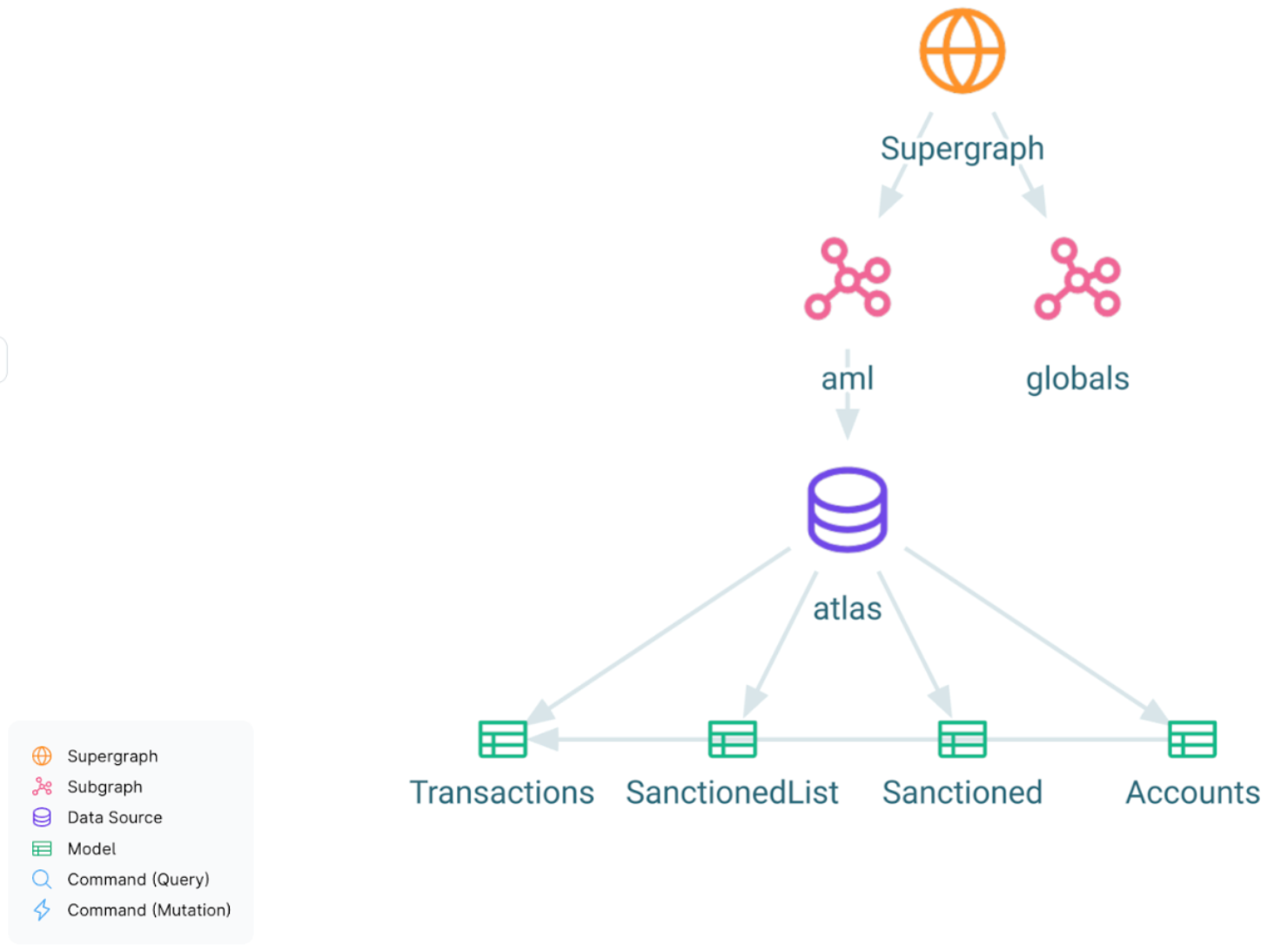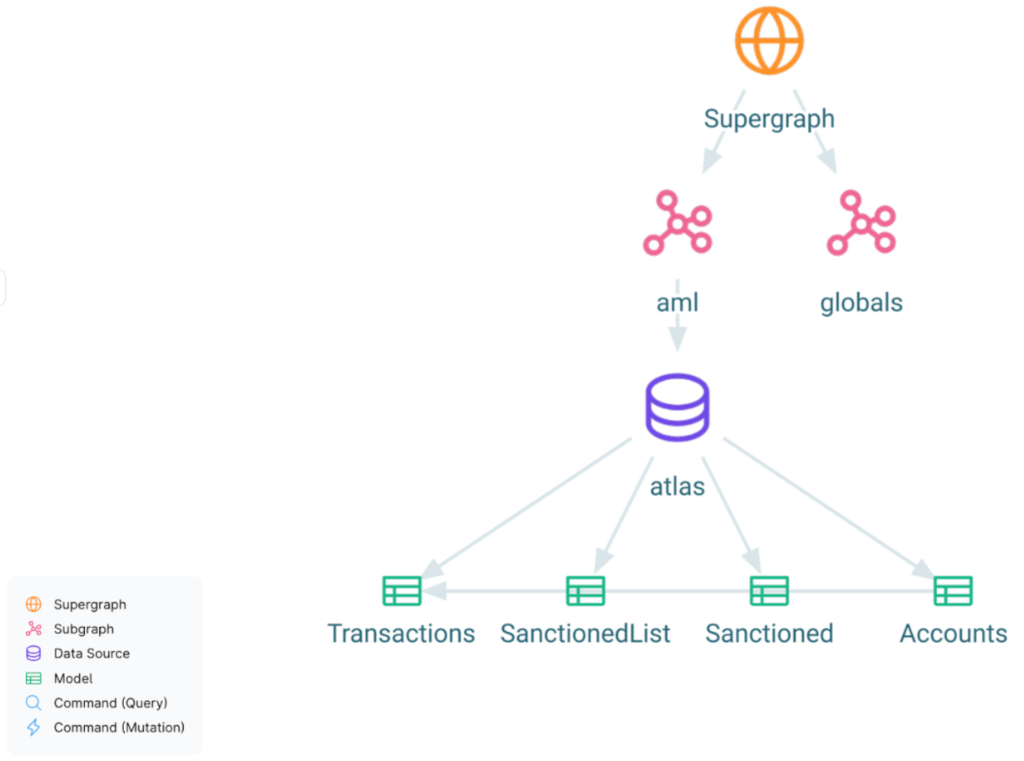Across industries—and especially in highly regulated sectors like healthcare, financial services, and government—MongoDB has been a preferred modern database solution for organizations handling large volumes of sensitive data that require strict compliance adherence. In such enterprises, secure access to data via APIs is critical, particularly when information is distributed across multiple MongoDB databases and external data stores. Hasura extends and enhances MongoDB’s access control capabilities by providing granular permissions at the column and field level across multiple databases through its unified interface. At the same time, designing a secure API system from scratch to meet this need takes significant development resources and becomes a burden to maintain and update. Hasura solves this problem for enterprises by elegantly serving as a federated data layer, with robust access control policies built-in.
Hasura enforces powerful access control rules across data domains, joins data from multiple sources, and exposes it to the user via a single API. In this blog, we’ll explore how Hasura and MongoDB work together to empower teams with granular data access control while simplifying data retrieval across collections.
Team-specific data domains
First, Hasura makes it possible for a business unit or team to own a set of databases and collections, also known as a data domain. Within each domain, a team can connect any number of MongoDB databases and other data sources, allowing the domain to have fine-grained role-based access control (RBAC) and attribute-based access control (ABAC) across all sources. More important though, is the ability to enable relationships that span domains, effectively connecting data from various teams or business units and exposing it to a verified user as necessary. This granular permissioning system means that the right users can access the right data at the right time, without compromising security.
Field-level access control
Hasura’s MongoDB connector also provides a powerful, declarative way to define access control rules at the collection and field level. For each MongoDB collection, roles may be specified for read, create, update, and delete (CRUD) permissions. Within those permissions, access may be further restricted based on the values of specific attributes. By defining these rules declaratively, Hasura makes it easy to implement and reason about complex access control policies.
Joining across collections
In addition to enabling granular access control, Hasura simplifies the retrieval of related data across multiple databases. By inspecting your MongoDB collections, Hasura can automatically create schemas and API endpoints (in GraphQL, REST, etc.) that let you query data along with its relationships. This eliminates the need to manually stitch together data from different collections in your application code. Instead, a graph of related data can be easily retrieved in a single API call, while still having that data filtered through your access control rules.
As companies wrestle with the challenges of secure data access across sprawling database environments, Hasura provides a compelling solution. By serving as a federated data layer on MongoDB and external data, Hasura enables granular access control through a combination of role-based permissions, attribute-based restrictions, and the ability to join data and apply access across sources.

With Hasura’s MongoDB connector, teams can easily implement sophisticated data access policies in a declarative way and provide their applications with secure access to the data they need. This combination of security and simplicity makes Hasura and MongoDB a powerful solution for organizations that strive to modernize, especially those in industries with strict compliance requirements.
Visit the MongoDB Resources Hub to learn more about MongoDB Atlas.
Want to learn more or see Hasura and MongoDB in action? Join Sig Narváez, Executive Solutions Architect, MongoDB and Adam Malone, Director of Solutions Engineering, Hasura on February 27, 2025 for a webinar on how MongoDB’s cutting-edge architecture, combined with Hasura’s powerful data access engine, provides a robust solution for enterprises dealing with data sprawl and security risks. Sign up here!
Source: Read More




